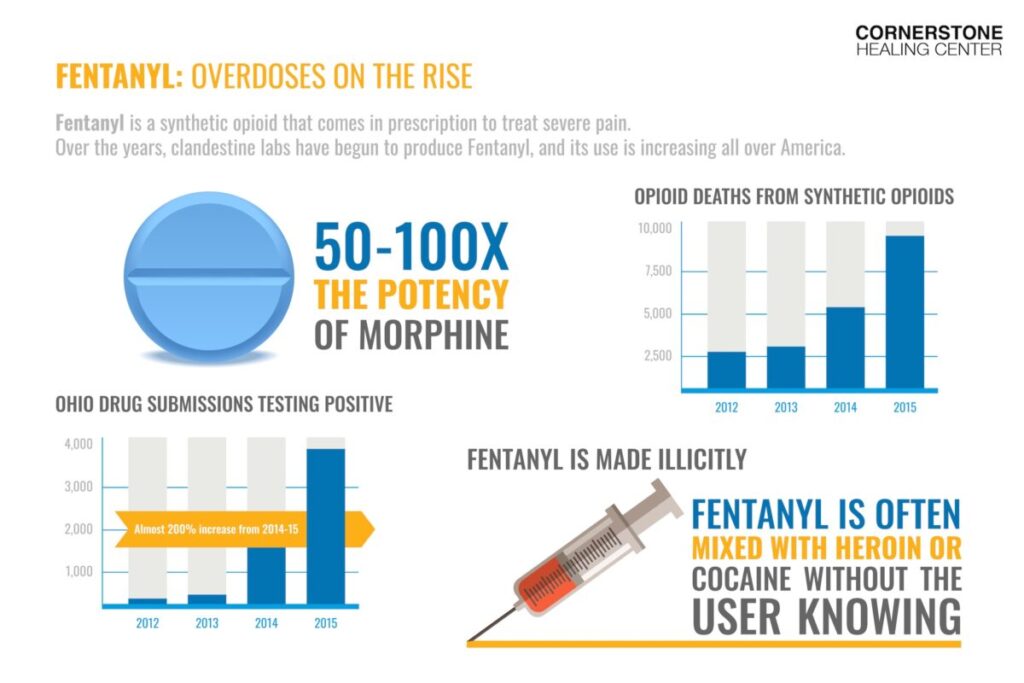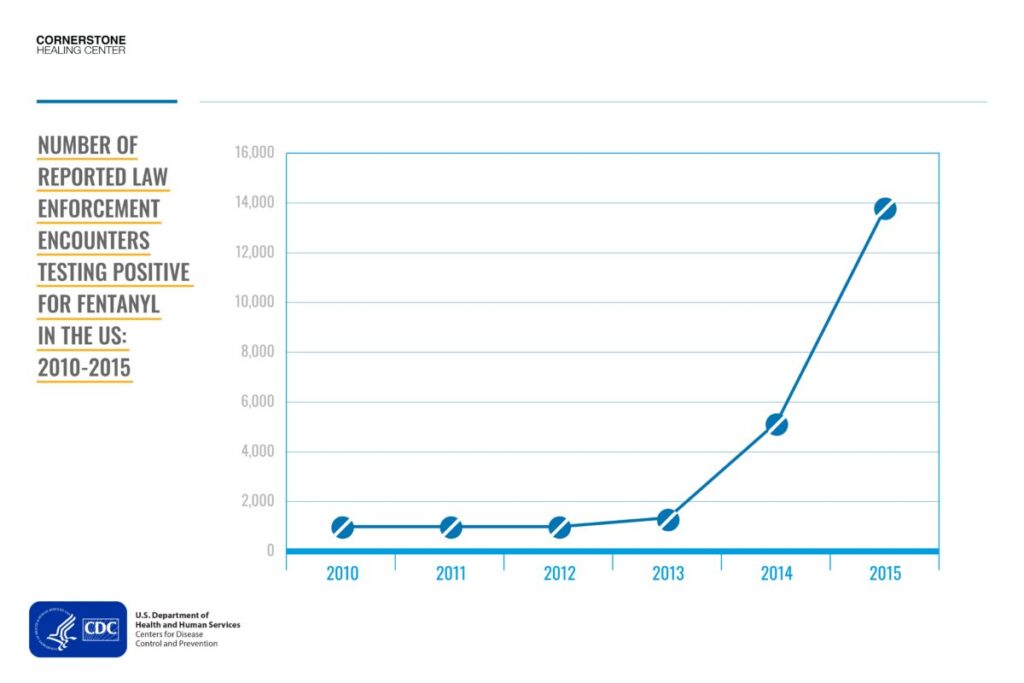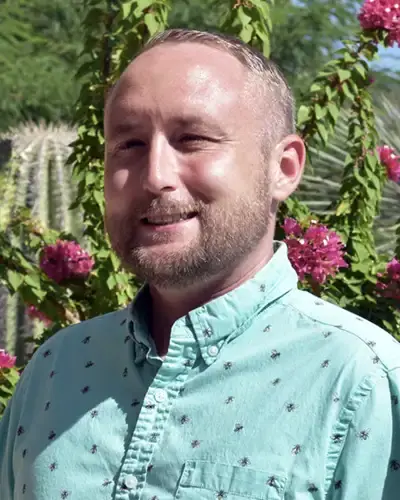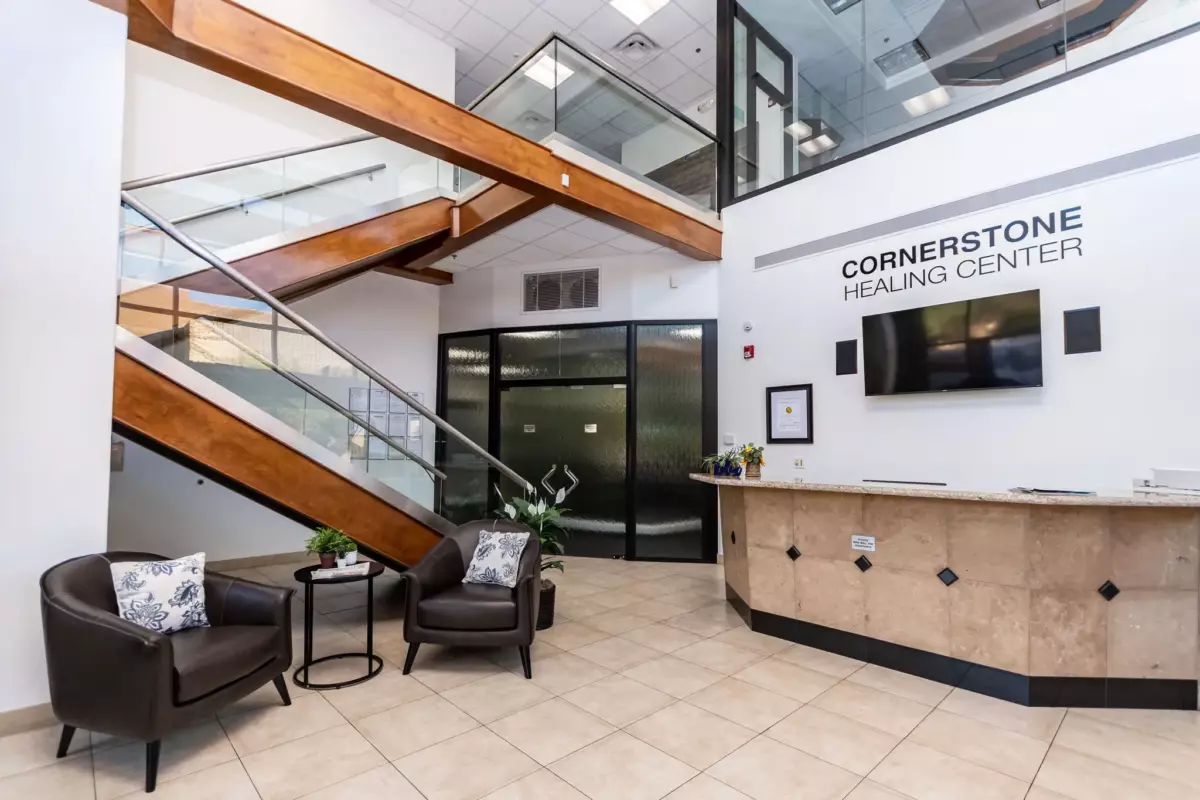Cornerstone
Fentanyl Drug Rehab
Begin healing from fentanyl addiction today
Get help for fentanyl addiction at Cornerstone
Are you or someone you love battling fentanyl addiction and looking for fentanyl treatment? You’re not alone. Fentanyl use has increased across the great state of Arizona and all over the country.
We understand the gravity of the effects that fentanyl has on families and friends of those who are addicted. Fentanyl addiction requires evidence-based treatment.
We have 6 fentanyl rehab programs that can help you or a loved one overcome addiction.
- Residential Treatment Program
- Partial Hospitalization Program
- Intensive Outpatient Program
- Outpatient Program
- Navigation/ Recovery Coaching
- Sober Companion
Cornerstone is a fentanyl drug rehab that focuses on healing the mind, body, and spirit from addiction We use a unique blend of science and spirituality to bring about long-term positive changes in our clients.
Vice News: Cornerstone’s CEO Estil Wallace discusses battling addiction during a pandemic.
Covid Overdose Wave
The COVID-19 pandemic has brought with it a surge in the use of fentanyl. Unfortunately, this increased use has been associated with a dramatic increase in overdose deaths and other adverse health outcomes.
The pandemic has made it even more difficult for people to access treatment for addiction, and this has contributed to the rise in fentanyl use.
The growing use of fentanyl even in the midst of a public health crisis highlights the urgent need for better access to treatment and prevention services to help individuals struggling with addiction.
Addictions we treat at Cornerstone

Fentanyl overdoes on the rise
According to statistics, out of 70,237 deaths related to drug overdose in 2017, 67.8 percent were attributed to opioid overdose out of which 28,466 opioid overdose deaths were related to a fentanyl overdose.
This data about fentanyl is truly concerning. In fact, anytime new data comes out, it seems as if the problem continues to grow. As a fentanyl rehab, we see real life examples of people affected by fentanyl daily.
Increase in fentanyl use in the United States
Fentanyl use in America is a growing problem that is becoming a major public health concern. According to the CDC, the number of deaths related to fentanyl increased by 45 percent between 2016 and 2017.
To address this growing epidemic, Cornerstone is dedicated to utilizing prevention, treatment, and recovery services to reduce the number of deaths related to fentanyl use in America.

Programs We Offer
Our Scottsdale fentanyl treatment programs
At Cornerstone Healing Center, Our team of licensed clinicians provide evidence-based treatment, such as cognitive-behavioral therapy, which helps clients learn how to recognize and manage triggers that can lead to relapse. We also provide dialetical behavioral therapy, individual therapy, group therapy, and family therapy in our Common Ground program.
In addition, our supportive recovery program includes life skills development, nutrition counseling, and 12-step meetings. We believe in creating a safe and supportive environment, so that our clients can focus on their recovery and build a foundation for long-term success.
RESIDENTIAL SUBSTANCE ABUSE TREATMENT
Our Treatments and Therapy Sessions
Cornerstone can help you overcome fentanyl addiction
It is never too late to seek treatment for your substance use disorder. Fentanyl addiction treatment is possible, and focusing on healing the mind, body, and spirit remains the cornerstone of addiction treatment.
Recovery does not happen overnight, but once a commitment is made and one stays determined, nothing can stop the individual from being drug-free.
We provide multiple options for fentanyl addiction treatment for you to choose from. Our programs can make a positive and lasting impact on your life. Let’s start the drug-free journey together.
Meet Our Clinical Team

Clinical Director of Scottsdale Program
Lionel is a Licensed Independent Substance Abuse Counselor (LISAC) with over 4 years at Cornerstone. Passionate about helping those with addiction and mental health struggles, and he has trained as an EMDR therapist, adopting a trauma-informed approach to find and treat underlying root causes with empathy.

Clinical Director of Phoenix Program
Nate began his recovery journey in 2010 and earned a Master’s in Social Work from ASU. He’s been in the Behavioral Health field since 2013. Specializing in CBT, DBT, and grief, Nate is now the Clinical Director of our Phoenix program, underlined by his passion for helping others who struggled with substance abuse issues as he did.
FAQs About Fentanyl Addiction
Get answers to the most commonly asked questions about fentanyl addiction and treatment.
Fentanyl is a strong opioid analgesic that is much the same as morphine but it is 50 to 100 times more potent than morphine. Fentanyl is reserved for use in the setting of chronic pain that is resistant to other analgesics such as cancer pain or pain after surgery. In short, it’s used to combat serious and debilitating pain.
Fentanyl like heroin and morphine works by acting on the opioid receptors present in the brain that regulate pain and emotions. To summarize, fentanyl works just as other opioids, just way more potent and way more addictive. Fentanyl users find out how addictive it is relatively quickly.
Fentanyl is a schedule II controlled drug that is approved by the FDA. Being a schedule II drug means that Fentanyl has significant potential for abuse and can lead to severe physical and psychological addiction.
Fentanyl was used medically for serious and painful conditions like cancer.
Now, fentanyl is widely being used recreationally. Most of the time, fentanyl comes in small blue pills which are replicas of real medication.
More recently, it’s starting to come in bright colors, which is concerning to the DEA because it appears as if the idea is to target younger adults and perhaps even teens.
Fentanyl interferes with the reward center in the brain and is therefore highly addictive as it creates a feeling of euphoria due to the release of dopamine and inhibition of pain signaling.
The following are the symptoms of fentanyl addiction:
- Preoccupied with the thoughts of obtaining and using fentanyl
- Isolating from all social activities
- Developing tolerance to fentanyl and using more quantity of the drug to achieve
- the desired effect
- Lagging in work and academics with an increasing number of absent days
- Using fentanyl to avoid the negative symptoms of withdrawal
- Inability to quit fentanyl despite wanting to do so
- Continuing to use the drug even after experiencing negative side effects
- Committing crimes to acquire money to purchase fentanyl
The following are the symptoms experienced during fentanyl withdrawal:
- Restless leg syndrome
- Sweating
- Irritability
- Inability to sleep or sleepiness
- Vomiting
- Shaking
- Intense Anxiety
- Depression
- Dizziness
- Intense cravings
Still have questions about treatment?
Our admissions specialists are here to explain the process, answer any questions you may have, and ensure you’re getting the help you need to live a healthy life free from addiction.





























